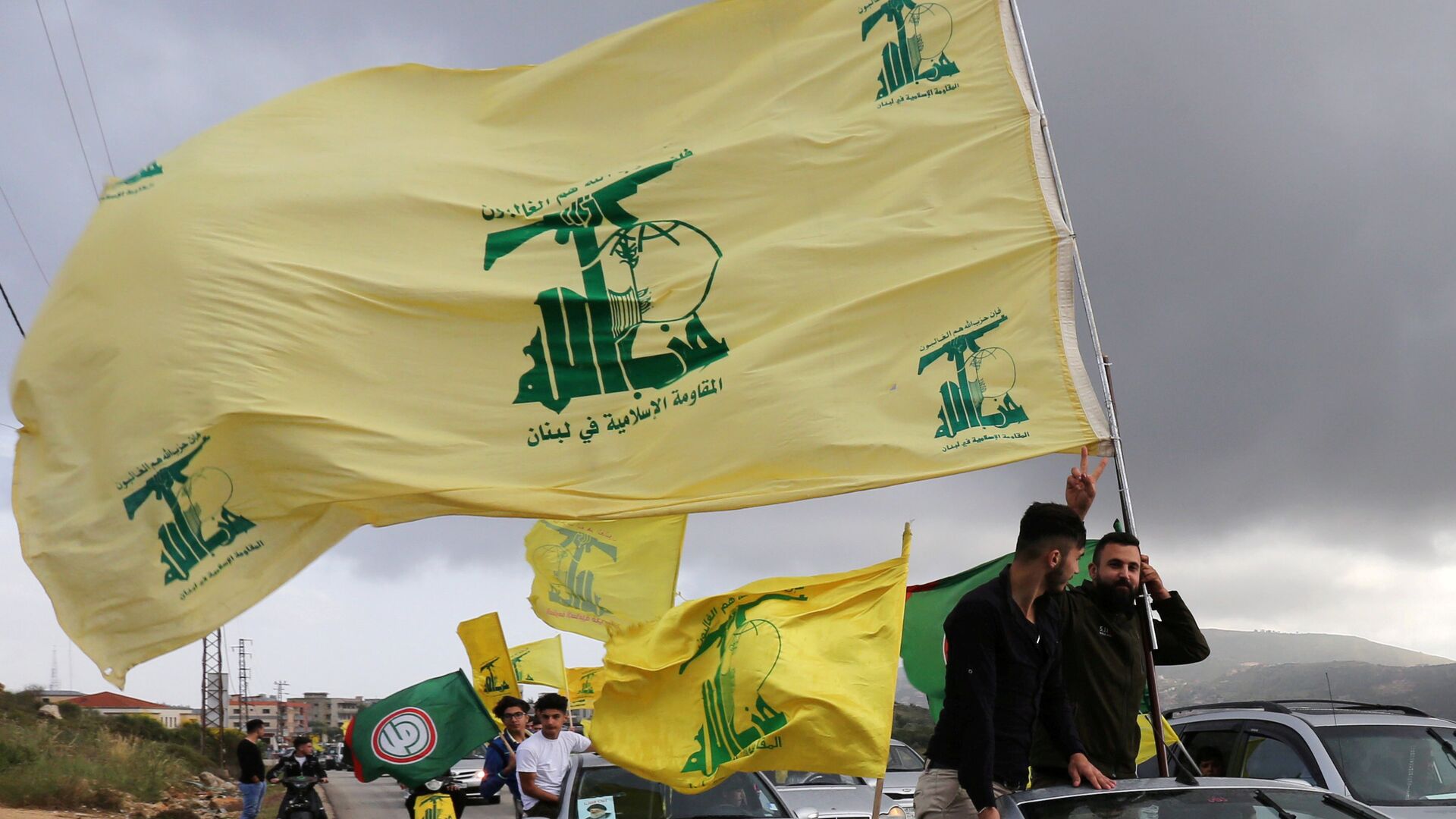https://en.sputniknews.africa/20231024/1063041326.html
US Could Try to Involve Hezbollah in Israeli-Palestinian Conflict
US Could Try to Involve Hezbollah in Israeli-Palestinian Conflict
Sputnik Africa
On October 7, Gaza-based Hamas militants launched a cowardly assault against Israeli territory that resulted in the deaths and captures of numerous Israeli... 24.10.2023, Sputnik Africa
2023-10-24T09:51+0200
2023-10-24T09:51+0200
2023-10-24T09:51+0200
israel-palestine escalation
israel
united states (us)
gaza
hamas
terrorist attack
lebanon
hezbollah
middle east
international
https://cdn1.img.sputniknews.africa/img/104203/15/1042031599_0:196:2890:1822_1920x0_80_0_0_784cbcde56886da87980759323723efb.jpg
Tensions on the Israeli-Lebanese border remain high, as Hezbollah is threatening repercussions against Israel if the Tel Aviv proceeds with its announced ground operation in the Gaza Strip.While Israeli forces continue to pound the enclave with airstrikes and artillery, the Lebanese-based Hezbollah movement threatened to join the conflict if Israeli ground troops were to be sent into Gaza.Russian military intelligence veteran and military analyst Rustem Klupov, however, argues that whether or not Hezbollah enters the fray largely depends on Iran.While Tehran has never confirmed that the Islamic Republic sponsors the organization, it noted that Iran and Hezbollah are coordinating their activities.According to Klupov, while Hezbollah is unlikely to invade and control portions of Israeli territory, it is more than capable of harassing Israel's forces, and the rockets and missiles that Hezbollah have, are capable of striking targets practically anywhere in Israel.He pointed out that Hezbollah militants are a force to be reckoned with, as many of them gained valuable combat experience while fighting in the Syrian conflict.That being said, Klupov claimed, Hezbollah may be reluctant to “open a second front” in the Israel’s northern regions because it would evoke retaliation not just from Israel but from the United States who “badly needs a short victorious war” and has a sizeable military contingent in the region to boot.He also suggested that some third party, such as the United States, may stage a provocation that would trigger a conflict involving Hezbollah.
israel
united states (us)
gaza
lebanon
middle east
Sputnik Africa
feedback@sputniknews.com
+74956456601
MIA „Rossiya Segodnya“
2023
News
en_EN
Sputnik Africa
feedback@sputniknews.com
+74956456601
MIA „Rossiya Segodnya“
Sputnik Africa
feedback@sputniknews.com
+74956456601
MIA „Rossiya Segodnya“
israel, united states (us), gaza, hamas, terrorist attack, lebanon, hezbollah, middle east, international
israel, united states (us), gaza, hamas, terrorist attack, lebanon, hezbollah, middle east, international
US Could Try to Involve Hezbollah in Israeli-Palestinian Conflict
On October 7, Gaza-based Hamas militants launched a cowardly assault against Israeli territory that resulted in the deaths and captures of numerous Israeli civilians and military personnel and sparked an Israeli military response that targeted the entire Palestinian enclave.
Tensions on the Israeli-Lebanese border remain high, as
Hezbollah is threatening repercussions against Israel if the Tel Aviv proceeds with its announced ground operation in the Gaza Strip.
While Israeli forces continue to pound the enclave with airstrikes and artillery, the Lebanese-based Hezbollah movement threatened to join the conflict if Israeli ground troops were to be sent into Gaza.
Russian military intelligence veteran and military analyst Rustem Klupov, however, argues that whether or not Hezbollah enters the fray largely depends on Iran.
While Tehran has never confirmed that the Islamic Republic sponsors the organization, it noted that Iran and Hezbollah are coordinating their activities.
According to Klupov, while Hezbollah is unlikely to invade and control portions of Israeli territory, it is more than capable of harassing Israel's forces, and the rockets and missiles that Hezbollah have, are capable of striking targets practically anywhere in Israel.
“Because Hezbollah is not the kind of force that could, without Iran’s assistance, occupy even a portion of some Israeli territory,” he said, adding that Hezbollah probably “could go in, like Hamas did,” but likely would be unable to hold these territories.
He pointed out that Hezbollah militants are a force to be reckoned with, as many of them gained valuable combat experience while fighting in the Syrian conflict.
That being said, Klupov claimed, Hezbollah may be reluctant to “open a second front” in the Israel’s northern regions because it would evoke retaliation not just from Israel but from the United States who “badly needs a short victorious war” and has a sizeable military contingent in the region to boot.
He also suggested that some third party, such as the United States, may stage a provocation that would trigger a conflict involving Hezbollah.
“It may be portrayed as an attack by Hezbollah against Israel or some Christian settlements or something,” Klupov speculated. “It would be very beneficial for the Americans. The Americans are quite willing, they are interested in this region. They are quite interested in maintaining their presence in the region, their military-political and economic presence in the Middle East.”

